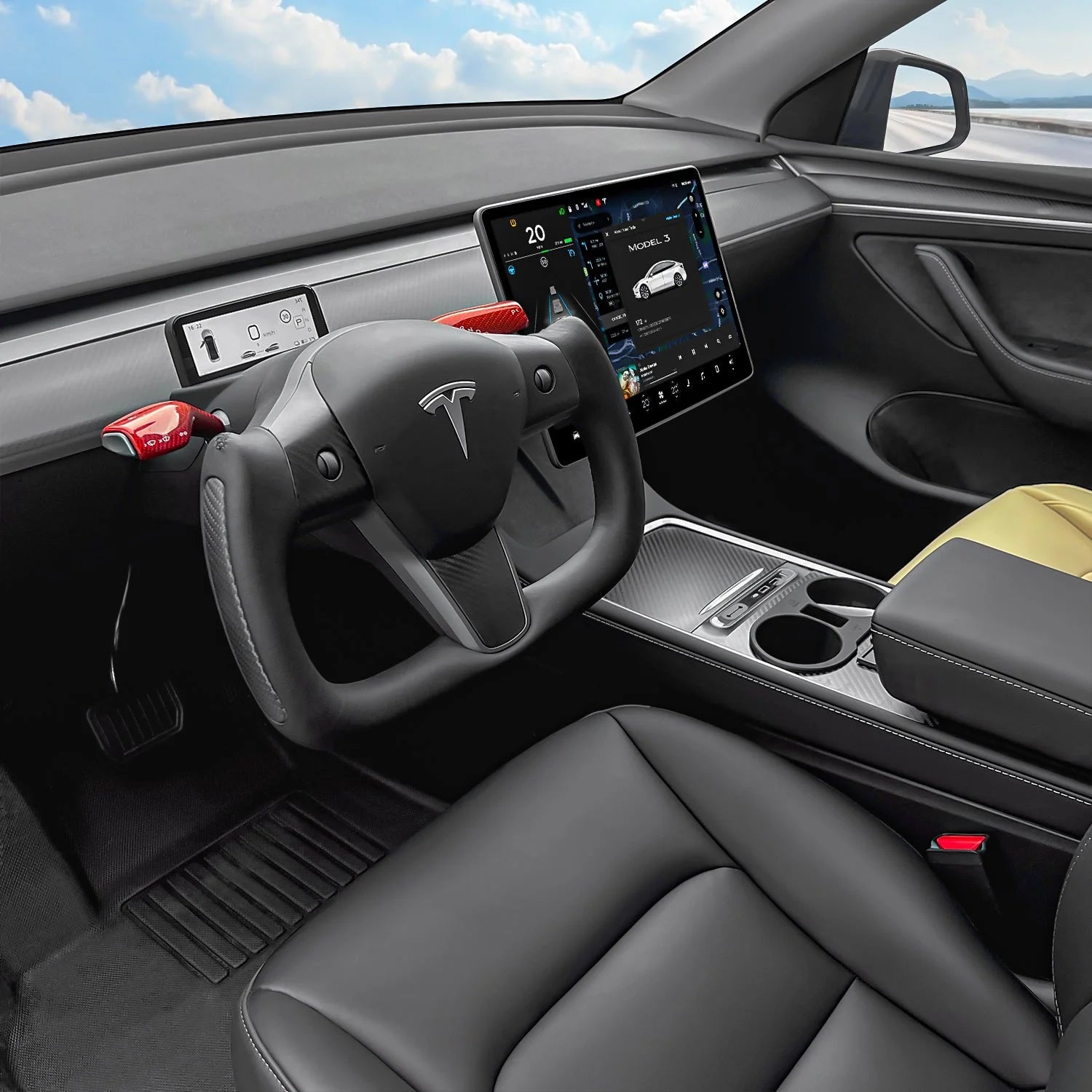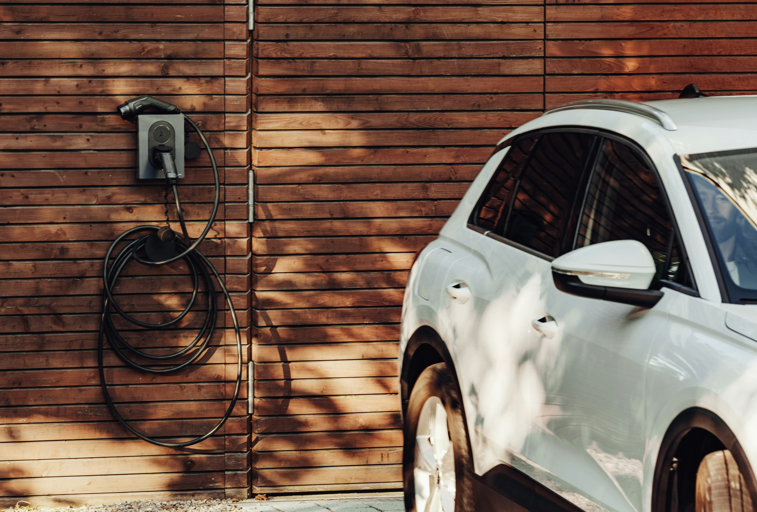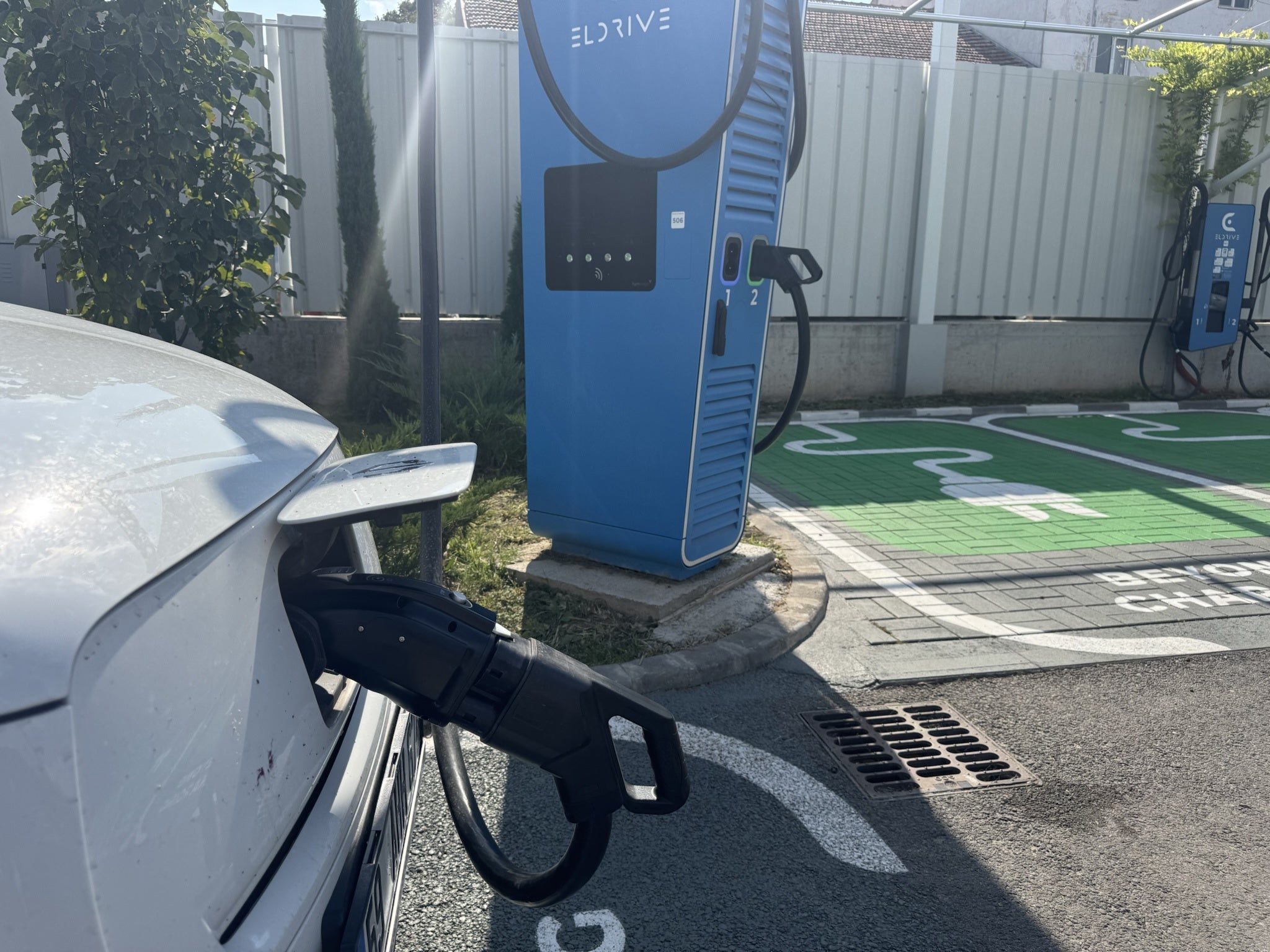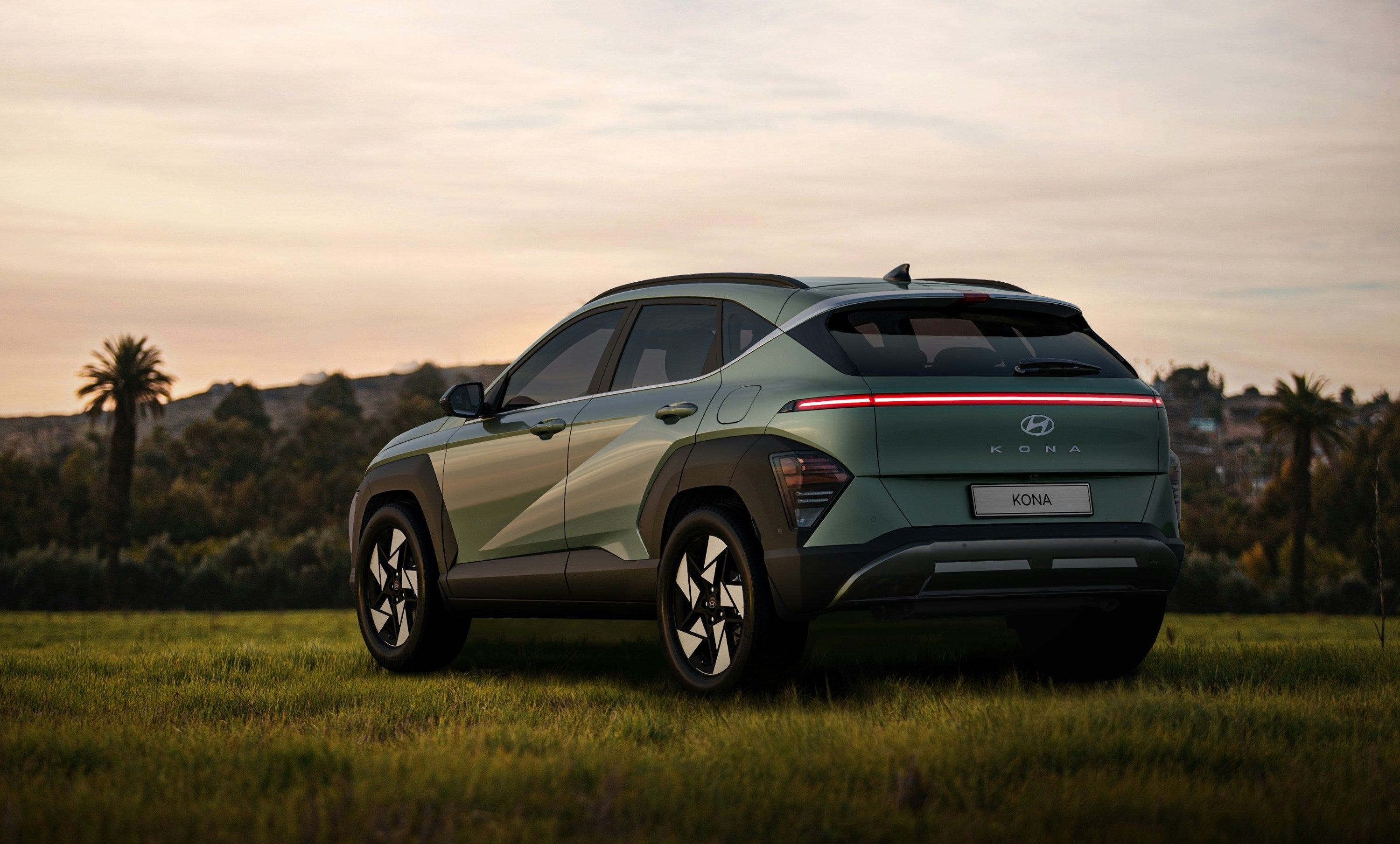¿Alguna vez se preguntó si los cargadores públicos de vehículos eléctricos tienen cables? Como nuevo propietario de un vehículo eléctrico, puede resultar complicado adivinar exactamente cuántos. estaciones de carga públicas Algunos cargadores tienen cables, otros no, y eso puede ayudarte con tu planificación.
No te preocupes, porque en este artículo te explicaremos en detalle todo lo que necesitas saber sobre la carga pública de vehículos eléctricos: si los cargadores vienen con cables o no, cómo funciona y algunos consejos sobre cómo cargar tu coche fácilmente.
Ahora comencemos.
¿Qué importancia tiene la carga pública de vehículos eléctricos en 2024?
La carga pública de vehículos eléctricos es muy importante ya que cada vez más personas optan por el uso de coches eléctricos.
He aquí por qué es importante:
Tasa de adopción de vehículos eléctricos en aumento
Hoy en día, cada vez más personas conducen vehículos eléctricos. Las razones por las que muchos conductores eligen estos vehículos tienen que ver con el deseo de ayudar a preservar el medio ambiente y reducir los gastos de combustible.
El volumen de vehículos eléctricos en circulación implica que también será necesario contar con más estaciones de carga públicas. En línea con esta tendencia creciente, los cargadores disponibles serán suficientes.
Mejor infraestructura para vehículos eléctricos
Las mejoras en la infraestructura de carga serán cruciales en 2024. Las ciudades están trabajando para construir tantas estaciones de carga como sea posible y ubicarlas convenientemente para los automovilistas con cargadores aún más rápidos.
En este sentido, una buena red de cargadores públicos hace mucho más fácil cargar un coche a lo largo de la ruta.
Beneficios de las estaciones de carga públicas
Estaciones de carga públicas Tienen una serie de ventajas que los hacen muy convenientes para aquellos propietarios de vehículos eléctricos que no pueden cargarlos en casa. Puedes encontrar estos cargadores en lugares como centros comerciales, estacionamientos y a lo largo de las carreteras, lo que facilita la carga mientras haces recados o viajas. Reducirían la ansiedad por quedarse sin energía y darían a los conductores más confianza para llegar más lejos.
En otras palabras, significa que la carga pública de vehículos eléctricos consiste en crear una estructura para apoyar el auge de los vehículos eléctricos y garantizar que los conductores estén equipados con lo que necesitan para estar cargados y preparados.
¿Cómo funcionan las estaciones públicas de carga de coches eléctricos?
Estaciones públicas de carga de vehículos eléctricos Son fáciles de usar y, por lo tanto, una bendición para los conductores que desean cargar sus vehículos eléctricos.
Así es como funcionan:
- Encontrar una estación de carga: Existen muchas aplicaciones y sitios web que pueden ayudarte a encontrar estaciones de carga cerca de tu ubicación. La mayoría de las redes de carga ofrecen mapas que muestran la ubicación de sus cargadores.
- Conectando a la carga: Una vez que llegas a una estación de carga, te encuentras con algo similar a un surtidor de gasolina, una unidad de carga. Algunas de ellas pueden tener cables conectados, o muchas de ellas requieren que lleves un conector que se adapte a tu coche.
- Iniciando la sesión de carga: Comience a cargar su vehículo siguiendo las instrucciones que le darán en la estación. Esto puede incluir escanear un código de respuesta rápida, usar una tarjeta de miembro o usar una aplicación para pagar la carga. Algunas permiten pagar con tarjeta de crédito en la máquina, pero no muchas.
- Cargando su vehículo: Una vez encendido, suministra electricidad al coche. El tiempo que tarda en cargarse depende principalmente del tipo de cargador que utilices y de la capacidad de la batería de tu coche. Con los cargadores rápidos, tardará menos tiempo y con los más lentos, más tiempo.
- Finalizar la sesión de carga: Cuando tu coche esté cargado o estés listo para subirte, detén la sesión de carga siguiendo las indicaciones que te den en la estación. Después, puedes desenchufar el cable y devolverlo al cargador o guardarlo en caso de que hayas traído el tuyo.
Estos vehículos eléctricos estaciones de carga públicas Están diseñados con tal simplicidad y facilidad en mente que uno puede conducir a cualquier lugar y cargar el automóvil.
¿Cuánto cuesta cargar tu vehículo eléctrico?
A modo de guía aproximada, cargar su vehículo eléctrico en estaciones públicas puede tener distintos tipos de costos según dónde se encuentre.
A continuación se muestra una visión aproximada de lo que podría pagar en diferentes continentes:
Coste de la carga de un coche eléctrico en una estación pública: Reino Unido
El costo de la carga El precio de un coche eléctrico en una estación pública del Reino Unido puede oscilar entre 0,20 y 0,60 libras esterlinas por kWh. Suele ser mucho más caro en los cargadores rápidos, pero suele ser más barato en los más lentos. Algunos lugares, como los centros comerciales, incluso ofrecen carga gratuita.
Costo de recarga de un vehículo eléctrico en una estación pública: EE. UU.
El costo de carga en los EE. UU. varía de un estado a otro y, a veces, está relacionado con redes específicas. Es posible que puedas pagar tan solo $0,10 y hasta un máximo de $0,40 por kWh en promedio.
Los cargadores rápidos son opciones bastante caras, mientras que los cargadores de nivel 2 siguen siendo más económicos. Algunas estaciones también ofrecen carga gratuita solo por tiempo limitado o como parte de una promoción.
Coste de recarga de un coche eléctrico en una estación pública: Alemania
En las estaciones públicas de Alemania, los precios pueden variar entre 0,29 € y 0,79 € por kWh, ya que todos los precios dependen del tipo de cargador. La mayoría de estas estaciones tienen planes de suscripción que resultan útiles para los usuarios habituales que quieran ahorrar un dinerillo extra.
Coste de recarga de un vehículo eléctrico en una estación pública: Francia
La recarga pública en Francia varía entre 0,20 € por kWh y 0,60 € por kWh. Los precios dependen del tipo de cargador y de la ubicación requerida para la carga. Incluso algunas ciudades ofrecen recarga gratuita en ciertas zonas para incentivar aún más el uso de vehículos eléctricos.
¿Los cargadores públicos de vehículos eléctricos tienen cables?
Una de las preguntas más frecuentes sobre los cargadores públicos de vehículos eléctricos es ¿Los cargadores públicos de vehículos eléctricos tienen cables?La respuesta puede variar, por eso aquí te contamos lo que necesitas saber.
Diferentes tipos de conectores
Mayoría Estaciones públicas de recarga de vehículos eléctricos Tienen cables conectados, pero no todos. Los tipos de conectores también pueden variar. Los conectores más comunes incluyen:
- Tipo 2: Este es el estándar más común para muchos vehículos eléctricos que se utilizan ampliamente en Europa.
- CCS (Sistema de carga combinado):Incluye un conector tipo 2 con pines adicionales para una carga rápida.
- El CHAdeMO: Se utiliza principalmente en automóviles japoneses, como Nissan.
- GBT: Común en China, principalmente para vehículos eléctricos locales.
¿Dónde encontrar un conector de carga EV de calidad para su automóvil?
Si necesita un conector para su propio cable de carga, puede encontrar opciones de calidad en varios lugares:
- Minoristas locales: La mayoría de las tiendas locales tienen cables y conectores para cargar vehículos eléctricos.
- Minoristas en línea: Estos incluyen, entre otros, Amazon y cualquier otro sitio web centrado en accesorios para vehículos eléctricos.
- Sitios web de los fabricantes: Consulte el sitio web del fabricante de su automóvil para obtener conectores y cables recomendados.
- Redes de carga: Algunas redes de carga venden sus propios conectores que son compatibles con sus estaciones.
Saber qué necesita tu coche y dónde lo necesitas es un gran paso para que la carga de tu vehículo eléctrico sea mucho más sencilla.




